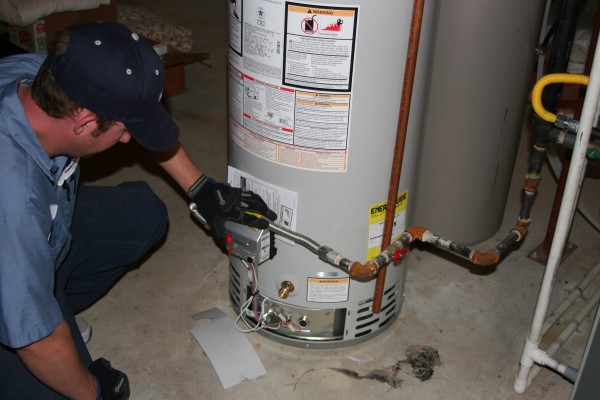At some point in the life of the furnace, it’ll need to be repaired. On a particularly cold morning, you’ll try to turn up the heat only to have the furnace remain strangely quiet and cold. Many people wonder if they should replace or repair their heater. While it maybe be a simple repair, it could be something more serious. It’s a common question that doesn’t have a specific answer since it depends on a few factors.
Age of the Equipment
A furnace can last 10, 15 or 20 years after installation. It depends on the care and maintenance given to the equipment during the heating season. It’s important to find the date of the heater’s installation. It’s normally on a tag or sticker on the unit itself.
If the heater is only a few years old, you should consider repairing the unit to prolong it’s life since it has a number of productive years ahead. There could have been a simple defect in a part that will not impact lifespan of the heater.
Type of Repair
A simple repair should be done instead of replacing the entire unit. Many homeowners might be tired of the little repairs if they’ve had a run of bad luck with the unit, but overall, small repairs should be done without replacing the heater.
A serious problem like a heat exchanger with a crack in it will require a new system since that’s a serious danger to the occupants of the home. It will allow poisonous gas called carbon monoxide to be released into the home, which is a deadly problem.
Efficiency of the System
Some heaters might not need a specific repair, but they are not running as efficiently as they once did. It takes a higher temperature to heat the home, which means the furnace is struggling and energy is being wasted.
If your bill is higher each year, it might be time to consider replacing the unit with one that’s more energy efficient. A new heater could save up to 20% in heating costs, which could cover the costs of a new unit within a couple of years.
Tax Incentives and Manufacturer Rebates
The government has energy efficient tax incentives for people that choose energy efficient installations. Homeowners can receive a tax credit from the federal government as well as other local tax benefits. Many manufacturers offer rebates for their equipment too.
It’s important to factor in those savings into the budget considerations for a new installation versus a repair that may prolong the life of the current unit. It takes some planning and budgeting to decide whether to repair or replace the home’s heating unit. Before you decide the fate of your heater, make sure you investigate your options and contact a reputable company to help you with the assessment.
They may recommend a repair over a replacement or vice versa. Ultimately, the decision is yours. You’ll need to understand the pros and cons of repairing versus replacing the unit and whether you’ll save money in the long run by replacing a faulty or old unit.
Charlie Teschner started MESA Plumbing, Heating, and Cooling in 1982. Charlie has a journeyman and master plumber’s license. He was raised with a strong work ethic and he now applies those values to tasks such as Longmont, CO heating repair.
